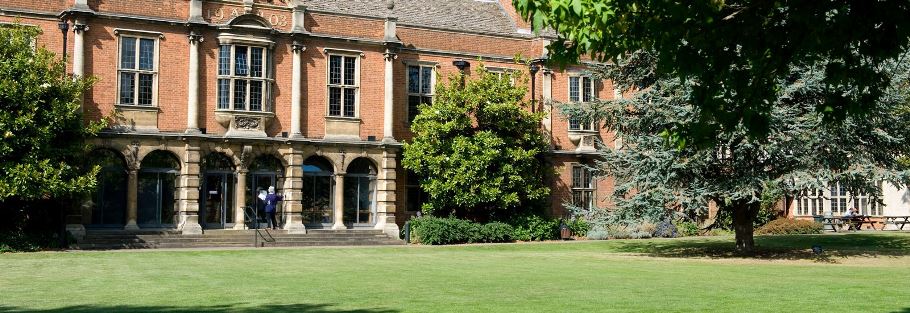
Supporting students applying to Oxford University - my tips for schools
Recently I was very privileged to support a visit for Year 10 and 11 students from a small number of schools to Oxford University, working with the fantastic team at the Higher Horizons + network (or Hi Ho+ as affectionately named). This is an NCOP network (check out this blog if NCOP is new to you). They arranged an Oxford visit for a group of schools to Somerville College. This is a fantastically inspiring place – their list of alumni includes Britain’s first female Prime Minister!
I was there to run fun and interactive workshops introducing higher education to the students broadly – Oxford was there to inspire students to fulfil their potential and breakdown barriers. What an opportunity for these students. Few people will visit Oxford University in their lifetimes, let alone having the opportunity to do so when working up to one of the biggest decisions of their lives… whether “to HE or not to HE”… (sorry Hamlet).
Dr Steve Rayner, the Senior Admissions Tutor at Somerville College, and a physics expert hosted the visit. He was incredibly warm and is clearly a firm believer in fair access. He offered students fantastic advice and I will share the top things I learnt here.
Oxford University - key facts that I took away..
1: Oxford is a collegiate university, as is Cambridge and a few others - this means it is formed of a group of Colleges – in Oxford’s case over 30. As a student you will study at Oxford University but with a particular college (for example Somerville College). That will be your ‘mini-campus’ with computing facilities, a dining hall, sports, bars, accommodation and staff all on one site. A College won’t be one subject area – it will include a wide range of subjects students are studying. That is some network!
2: Students will get a lot of support at Oxford – that may be academic where they may be subject to smaller group sizes, but it may well be extra-curricular too. Again this will apply to other universities as well – but the teacher-student ratio will be very conducive to a student fulfilling their potential.
3: Teaching type will range, often from small group tutorials and seminars, combined with world class lectures. That may sound like every other university, but tutorials at Oxford sounded very different. Lots of research and preparation is essential for these tutorials and they will be likely to be at least once a week where students will discuss an essay or a set of problems. Students won’t have the opportunity to hide at the back as I often tried to do when I was at university – they will have the opportunity to shine and develop their full potential.
4: In terms of applications, Oxford are looking for academic ability and potential, a student meeting their subject requirements based on previous key stage 5 option choices, interest and enthusiasm for the course and institution and suitability for a specific course in their applicants. People think the school and background are important too – they won’t be and Oxford clearly work very hard to remove that stigma.
5: It is important to remember that Oxford (and Cambridge too) have a different admission process with an earlier deadline in October, probably an admissions test (do check out past papers!) or written work and an interview before a January application decision. Students can also apply for a specific college if they wanted to, though there is no guarantee even if they are offered a place they will get into the College they aspire to study with.
Oxford is understandably very competitive - only around one in five students applying to Oxford are made an offer.
So what does an Admissions Tutor want to see in an Oxford application?
The best way to know that is by asking an Admissions Tutor - and Dr Rayner’s top three tips were:
1. To evidence academic ability and potential
2. To demonstrate independent thought and intellectual curiosity
3. To show a clear motivation and commitment to study.
And not forgetting the selection criteria for each subject which can be found online. Students should look closely at that before thinking about an application.
And how about a personal statement - what do Oxford look for?
Personal statements are personal (as the title suggests!) so I won’t be too prescriptive here. But Dr Rayner spoke about looking at reasons to study the subject a student is applying for and most importantly evidencing the course is right for them would be a great place to start.
Dr Rayner also recommended a student uses their time to build content for an application – for example ensuring they attain academic grades to fulfil their potential and using the summer before applying to get involved in lots of reading, relevant work experience, maybe TV and Radio opportunities, guest lectures, summer schools and competitions as well.
One final piece of advice for schools...
If you have the opportunity to take students to a visit like this one – I would encourage you to do it. Whether they apply to Oxford or not, it will be a day the students remember forever. I certainly will (although I have been back since running the session to deliver it again, so I win!!).
Photo credit: Somerville College, Oxford University
